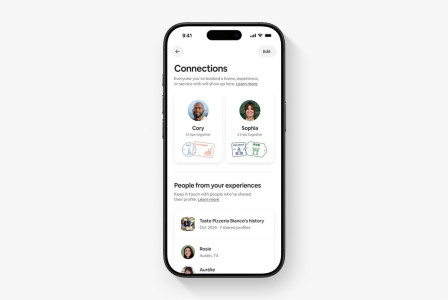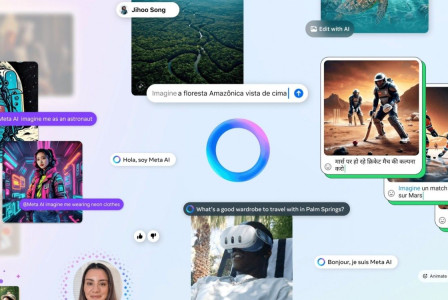SEARCH
Facebook’s new AI can dig through your camera roll

SHARE IT
Facebook is taking another leap into AI-powered creativity with a new feature that can scan your phone’s camera roll and transform your forgotten photos into ready-to-share collages and edits. The tool, which has just rolled out across North America, aims to help users rediscover their “hidden gems” — those overlooked snapshots buried deep within photo libraries — while also quietly advancing Meta’s broader ambitions in artificial intelligence.
The feature, first tested earlier this year, is entirely optional. Users must actively grant permission before Facebook can access their photo libraries. Once enabled, the AI combs through your images, identifies patterns and themes, and offers personalized suggestions. It might, for instance, propose a vacation montage, a graduation recap, or automatically enhance certain pictures for social media. Essentially, Facebook’s AI acts as a digital curator, turning mundane moments into something more polished — and more likely to be shared.
From a user’s perspective, this sounds like a convenient way to breathe new life into years of photos that rarely see the light of day. But there’s also a deeper layer to this rollout. Every new AI feature from Meta tends to spark questions about privacy, data use, and how much personal content fuels the company’s machine-learning systems.
According to Meta, the system will not automatically use your photos to train its AI models. That only happens if you actively edit your media with Facebook’s AI tools or share the AI-generated content. In other words, if you decide to post that clever collage or let the AI enhance your images, your photos may then become part of the data that helps refine Meta’s algorithms.
Still, the privacy fine print reveals a continuous process behind the scenes. Once granted permission, the feature periodically selects media from your camera roll and uploads it to Meta’s cloud infrastructure to generate new suggestions. The selection is based on factors like time, location, or recurring themes, helping the system detect meaningful patterns — perhaps a weekend trip, a family gathering, or a set of similar landscapes. Meta insists that this process remains private, emphasizing that the resulting recommendations are visible only to you until you decide otherwise. The company also stresses that none of this data will be used for advertising purposes.
For those wary of overreach, the good news is that opting in is completely voluntary. If you’d rather not share access to your photos, you can simply ignore the feature and continue using Facebook as usual. Even if you activate it out of curiosity, you can easily revoke permission later through Facebook’s camera roll settings. Once disabled, the system stops scanning and uploading your photos, ensuring users retain control over their data.
From a broader industry standpoint, the move highlights how Meta — like many tech giants — is leaning on generative AI to keep users engaged and creative. By automating what used to be manual, time-consuming work, Facebook positions itself as both a creative assistant and a personalization engine. The company’s vision seems to blend convenience with inspiration: helping users rediscover memories, while simultaneously encouraging more sharing — a key driver of engagement across Meta’s platforms.
However, this convenience also raises questions about the line between assistance and automation. The feature represents another step toward AI systems that anticipate human creativity, potentially reshaping how people express themselves online. For some, it’s an empowering tool that lowers the barrier to digital storytelling. For others, it’s a sign of how algorithmic curation might slowly replace genuine, hands-on creativity.
At the moment, the feature is available only in the United States and Canada, with Meta planning to test it in additional countries in the near future. It’s yet another example of how AI is being woven deeper into everyday social media use — quietly expanding the boundary between personal data and machine intelligence.
MORE NEWS FOR YOU

 Help & Support
Help & Support 

